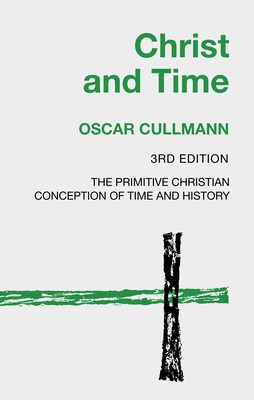
- We will send in 10–14 business days.
- Author: Oscar Cullmann
- Publisher: Wipf & Stock Publishers
- Year: 2018
- Pages: 270
- ISBN-10: 1532657013
- ISBN-13: 9781532657016
- Format: 13.7 x 21.3 x 1.5 cm, minkšti viršeliai
- Language: English
- SAVE -10% with code: EXTRA
Reviews
Description
""The object of the present work is to determine what is central in the Christian proclamation. We are tempted to represent as the 'kernel' or 'essence' of this proclamation that which appeals to us personally, and to consider as external and dispensable 'framework' that which is strange to us. It is due to the richness of the Christian message that the question as to the central element from which all the other features are to be explained arises at all, and the endeavor to determine this central element must be designated the one great task of New Testament scholarship, and perhaps of all Christian theology."" --From the Foreword Dr. Oscar Cullmann (1902-1999) was born in Strasbourg--then in Germany--where he studied classical philology and theology. From then on, he held a variety of teaching positions involving history and theology. He is best known for his extensive work in the ecumenical movement and can be partially credited for establishing a dialogue between the Lutheran and Roman Catholic traditions.
EXTRA 10 % discount with code: EXTRA
The promotion ends in 23d.00:36:27
The discount code is valid when purchasing from 10 €. Discounts do not stack.
- Author: Oscar Cullmann
- Publisher: Wipf & Stock Publishers
- Year: 2018
- Pages: 270
- ISBN-10: 1532657013
- ISBN-13: 9781532657016
- Format: 13.7 x 21.3 x 1.5 cm, minkšti viršeliai
- Language: English English
""The object of the present work is to determine what is central in the Christian proclamation. We are tempted to represent as the 'kernel' or 'essence' of this proclamation that which appeals to us personally, and to consider as external and dispensable 'framework' that which is strange to us. It is due to the richness of the Christian message that the question as to the central element from which all the other features are to be explained arises at all, and the endeavor to determine this central element must be designated the one great task of New Testament scholarship, and perhaps of all Christian theology."" --From the Foreword Dr. Oscar Cullmann (1902-1999) was born in Strasbourg--then in Germany--where he studied classical philology and theology. From then on, he held a variety of teaching positions involving history and theology. He is best known for his extensive work in the ecumenical movement and can be partially credited for establishing a dialogue between the Lutheran and Roman Catholic traditions.


Reviews